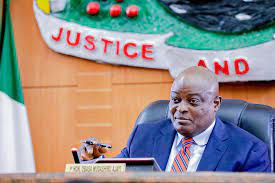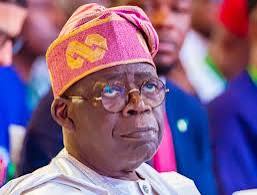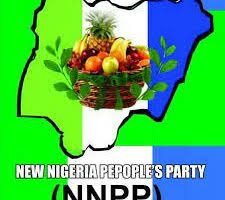As Nigerians prepare to go to the polls next month to elect who will govern them, MOSES JOHN takes a look at the readiness of the organised Labour to ensure their votes count.
The 2011 general elections in Nigeria was adjudged by the international community as a credible election ever conducted in the country, but others are of the opinion that most Nigerians have been disfranchise while others vote was not count, hence there is need for worker s to votes and defend their vote by making sure only credible and qualify people emerged in 2015.
To this end, the organised Labour declared to politicians that workers and the masses are going to vote and ensure their votes count.
“We wish to inform politicians that the labour movement is not oblivious of the fact that we are in an election year. Meanwhile, while we make case a for free and fair elections, we also want politicians to know that we, the workers and masses are going to do the voting and that we are going to ensure that our votes count. Social contract this time must be re-invented. Waterloo to riggers, we have resolved that no retreat no surrender until our votes are allowed to count”.
The Nigeria Labour Congress, NLC, and the Trade Union Congress, TUC, however told their members to brace up for hard time ahead considering the austerity measure of Government due to the falling down of the price of crude oil in the international market.
While the Nigeria Labour Congress, NLC, said workers all the country would vote out “anti-worker politician” who owed workers’ salaries, their TUC counterpart lamented the situation whereby politiciansuse power and money because they lack the required ideas to transform the country and win them to the people.
They warned politicians and government against using of states coercive power; especially the police and resort to use of touts and idle youths to molest political opposition and journalists.
President of NLC, Abdulwaheed Omar in his New Year massage, said reports from the NLC state councils indicated that that a number of state governments and some federal MDAs have not paid their workers for December as the year comes to an end.
According to him, out of the 30 states as of the 30th of December, 11 subjected their workers to a Christmas/New Year celebration without the December salary, adding three of these are Benue, Plateau and Osun owed their workers arrears of salaries ranging from 3 to 8 months.
He said “We condemn this insensitivity to the welfare of workers. Any State Governor, who cannot pay workers their salaries, as and when due, has no moral justification for taking his own salary and allowances. We call on workers to massively reject these anti-worker politicians in the 2015 elections. Meanwhile, we direct our State Councils in the three states mentioned above to serve appropriate ultimatums on their government to pay the arrears of salaries or face disruption of services”.
Omar said that 2015 is an election year whose outcome will mark a watershed in the history of Nigeria’s democracy, adding that government must ensure fair, transparent and credible elections.
“We insist, Nigeria is bigger than any partisan interests and its sovereignty and inviolability are sacrosanct. Workers are enjoined to come out en mass to perform their civic duty as well as defend their vote. Power lies in the voter’s card.
Government is also called upon to fashion out a comprehensible and implementable national security strategy that is capable of dealing with the myriad of threats to our unity and sovereignty”.
He lamented that little was done to deepen democratic culture in the polity as government, through the institutions of the State; especially the police demonstrated unacceptable intolerance of political opposition.
The NLC boss however lamented over cases of gross human rights abuses, especially the cold-blooded murders in Abuja and Zaria in the name of pre-emptive strikes against Boko Haram, stressing that Government deserves commendation for giving the Human Rights Commission free and unfettered freedom to conduct investigations and to reach un-influenced conclusions.
According to him, “we note with burdened hearts, the spate of strikes across the sectors, especially in health and education largely because of the refusal or inability of government to honour agreements it voluntarily entered into with the unions.
This led to avoidable disruption of services with consequences for students and vulnerable Nigerians with whom government had made its pact. Government’s behaviour further undermined the fragile peace and capacities in the sectors”.
He also said that, “despite the rating of the economy in the year as the biggest in Africa, there was little by way of practical performance: lending rates remained high making the cost of doing business unreasonable; the Naira was hugely devalued in the last quarter jerking up the cost of living and preventing Nigerians from benefitting from falling crude oil prices; the economy remained largely import-based in spite of the volume of the so-called foreign direct investment.
“Not surprisingly, unemployment figures remain unacceptably high; crime rates quadrupled, poverty deepened, energy sector consistently operated at its lowest ebb ever, putting a question mark on the wisdom behind privatising the sector. Paradoxically, this poor service was marked by inexplicable high tariffs.
“Insurgency rose to unprecedented levels leading to loss of territories, destruction of lives and properties, refugee problems and threat to food production. On a non-physical plane, the psyche of Nigerians was thoroughly brutalized.
“In spite of government’s sworn commitment and the presence of a multi-agency task force in the Niger Delta, crude oil theft assumed a phenomenon in the year, accounting for as much as 30 per cent of national output. This has created loss of revenues and divestments. Closely linked to this horrendous crime is the degradation of the environment by illegal refineries, oil spills, cover-ups and related incidents.
“It would appear that government does not have a structured response to the present volatility in the crude oil market sparked by commercial shale oil mining and deepened by crashing prices across the globe. Practically all the measures mooted or taken so far by government smack of shock and panic and clearly expose our vulnerability.
“Clearly, this would have been avoidable if our suggestions had been taken on board by government. For instance we recall advising government time without number to boost the capacity of domestic refining instead of depending on imports whose landing cost is dependent on prevailing exchange rate and other motivations not far from usury.
“While we appreciate the difficulties brought on by the collapse in oil prices, we caution against the imposition of unselective austerity measures. Already, workers continue to bear the brunt of the savage devaluation of the Naira with possibility of collateral consequences. We also strongly advise against consideration for rationalisation of staff. We support government initiatives to tax the rich through luxury taxes. More importantly, we are convinced that the surest way to manage the budget under austerity is to reduce the cost of governance. Bloated prerequisites of political office holders must be cut. Prerequisites and comfort of politicians need to reflect the reality of the times. Mr President and the state house must lead in this regard. The size of the Presidential fleet, the cost of running the State House and the retinue of political jobbers can all be reasonably cut without reducing the effectiveness of the Presidency”.
The congress also condemn the imposition of exploitative electricity tariff and urge caution in case this leads to some further un-pleasantries, adding that, “ We note sporadic protests against these tariff hikes in cities across the nation including Benin, Enugu, Lagos and Kano”.
TUC president, Comrade Bobboi Kaigama on his part said congress feels at this time that it is important it calls government’s attention to a number of issues plaguing employers and employees relationship to ensure a friendly working environment this year.
“First and foremost is the impunity of politicians and mismanagement of the fortunes of the oil and gas sector. Congress laments the way and manner our politicians go about their politicking. What we could read on the wall can best be described as “I must get there no matter whose ox is gored”, which is an aberration. They use power and money because they lack the required ideas to transform the country and win them to the people.
“What is predominant today is government use of states coercive power; especially the police and resort to use of touts and idle youths to molest political opposition and journalists. In the 1970s, we had political parties with manifestoes. The likes of Awos, Ziks and Tafawa Balewas’ of this world chronicled what they planned to do and how they planned to achieve them. But what do we have today? We are wiser now” he said.
On the recent drop in the price of crude, the TUC scribe said account has it that following the unexpected drop in the prices of crude government is planning to employ some austerity measures to cushion the effect on the economy.
According to him, labour movement and some fore-sighted Nigerians have severally called on government to make utmost use of the excess dollar gotten to diversify the economy, adding that politicians are only interested in rushing down to Abuja for monthly allocation even though government of allocation is not the idea of social contract.
“Our economy has just been rated the biggest economy in Africa. It would have been a laudable one if it had had a positive effect on the lives of an average Nigerian and the industrial environment. How do we agree with that when in practical terms: the lending rates, cost of living and doing business unreasonably high! Additionally, the hasty and deliberate devaluation of the naira which has also brought untold hardship to the real sector and all other facets of the economy have to be addressed as congress will not tolerate cases of job losses arising from government’s insensitivity.
“It becomes pertinent to warn against such move now to avoid worsening the spate of insecurity in the country today, which was occasioned by the gross mismanagement of the economy. No wonder, unemployment figures remain high; unimaginable crime rates, poverty, epileptic energy sector and inexplicable high tariff have become our lot. And it is yet a tragedy of national
proportion that as parents we slept in the comfort of our homes when the over 250 Chibok girls and the series of other kidnapped youths are nowhere to be found!
Congress expresses concern that government has refused to reduce the prices of petroleum product even though the price of crude has collapsed in the international market, which was the reason given when it wanted to increase the price of fuel in 2012. We urge government to direct appropriate agency to immediately adjust the prices of petroleum products as it will ameliorate the suffering of the Nigerian masses. We have put the government on notice that following the devaluation we are going to ask for wage increase to cushion its effect on workers’ plight”.



